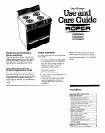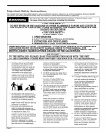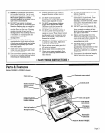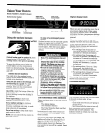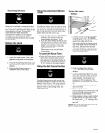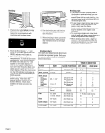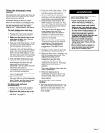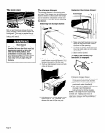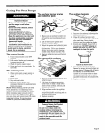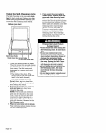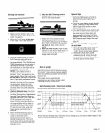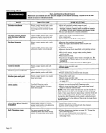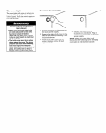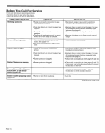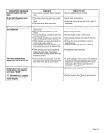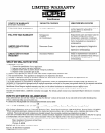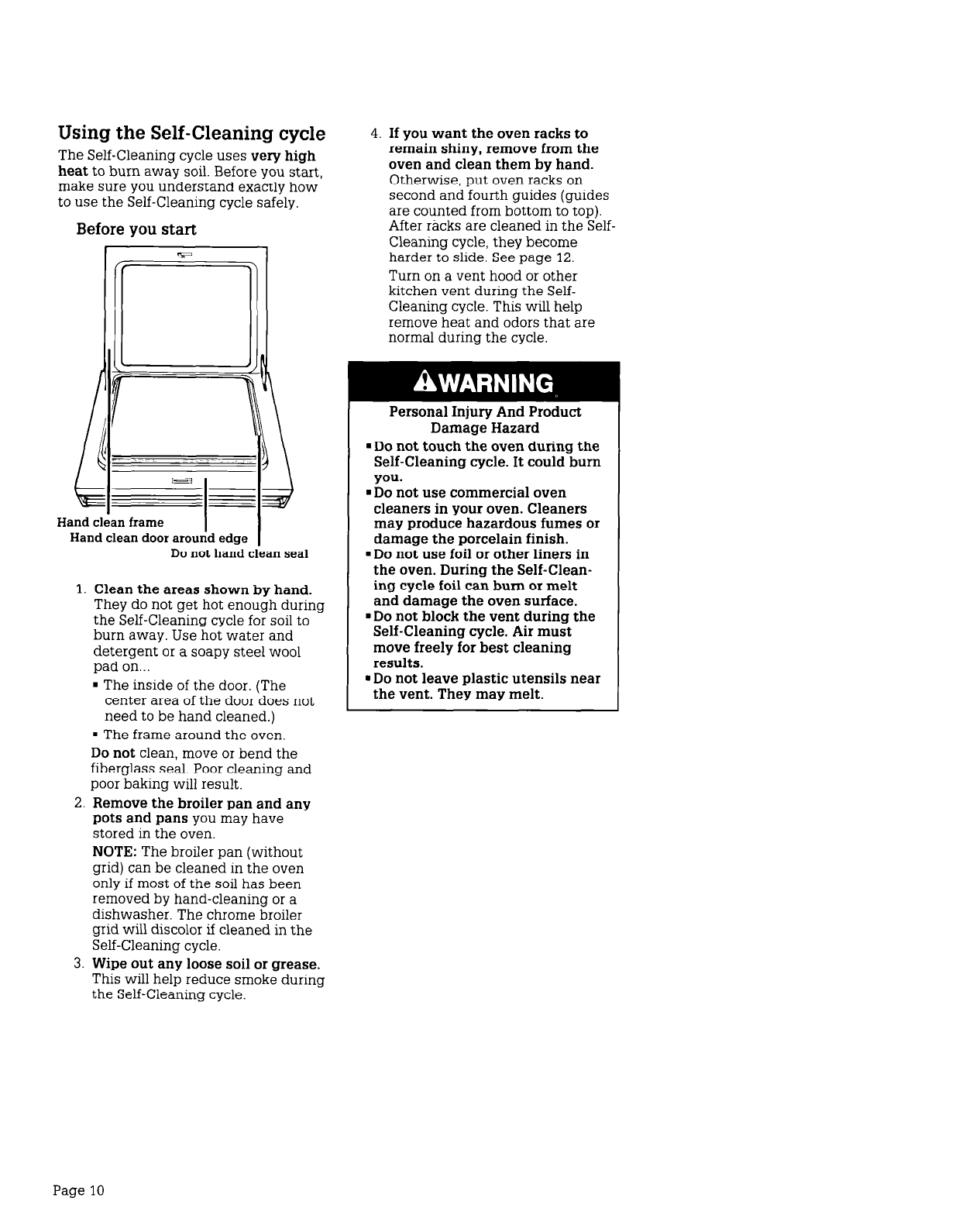
Using the Self-Cleaning cycle
The Self-Cleaning cycle uses very high
heat to burn away soil. Before you start,
make sure you understand exactly how
to use the Self-Cleaning cycle safely.
Before you start
I
Hand clean frame
I
Hand clean door around edge
I
Do not hand clean seal
1. Clean the areas shown by hand.
They do not get hot enough during
the Self-Cleaning cycle for soil to
burn away. Use hot water and
detergent or a soapy steel wool
pad on...
. The inside of the door. (The
center area of the door does not
need to be hand cleaned.)
1 The frame around the oven
Do not clean, move or bend the
fiberglass seal. Poor cleaning and
poor baking will result.
2. Remove the broiler pan and any
pots and pans you may have
stored in the oven.
NOTE: The broiler pan (without
grid) can be cleaned in the oven
only if most of the soil has been
removed by hand-cleaning or a
dishwasher. The chrome broiler
grid will discolor if cleaned in the
Self-Cleaning cycle.
3. Wipe out any loose soil or grease.
This will help reduce smoke during
the Self-Cleaning cycle.
4. If you want the oven racks to
remain shiny, remove from the
oven and clean them by hand.
Otherwise, put oven racks on
second and fourth guides (guides
are counted from bottom to top).
After racks are cleaned in the Self-
Cleaning cycle, they become
harder to slide. See page 12.
Turn on a vent hood or other
kitchen vent during the Self-
Cleaning cycle. This will help
remove heat and odors that are
normal during the cycle.
Personal Injury And Product
Damage Hazard
.Do not touch the oven during the
Self-Cleaning cycle. It could burn
you.
. Do not use commercial oven
cleaners in your oven. Cleaners
may produce hazardous fumes or
damage the porcelain finish.
. Do not use foil or other liners in
the oven. During the Self-Clean-
ing cycle foil can bum or melt
and damage the oven surface.
.Do not block the vent during the
Self-Cleaning cycle. Air must
move freely for best cleaning
results.
. Do not leave plastic utensils near
the vent. They may melt.
Page 10



